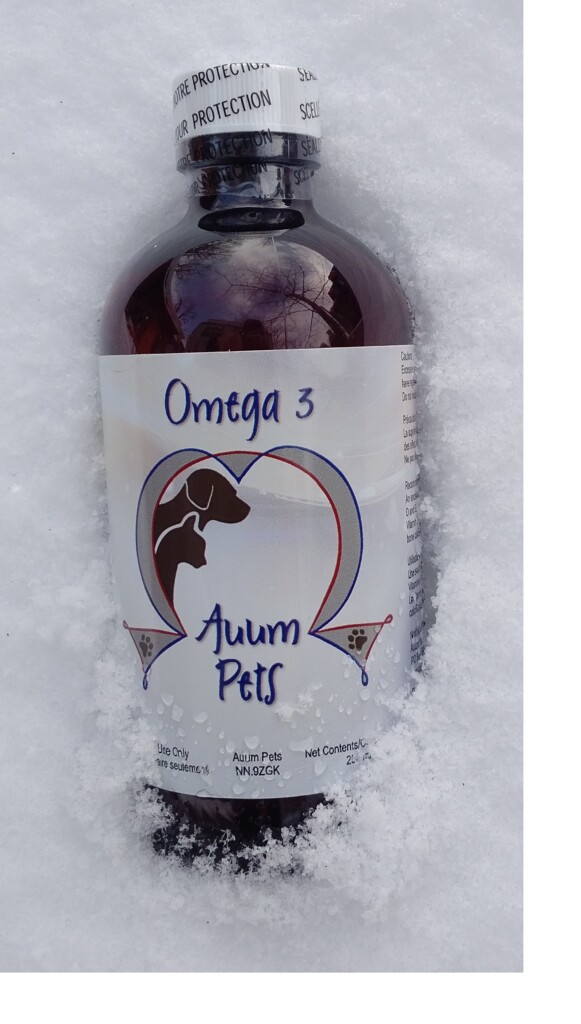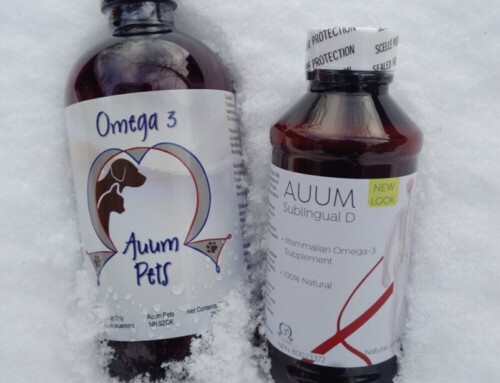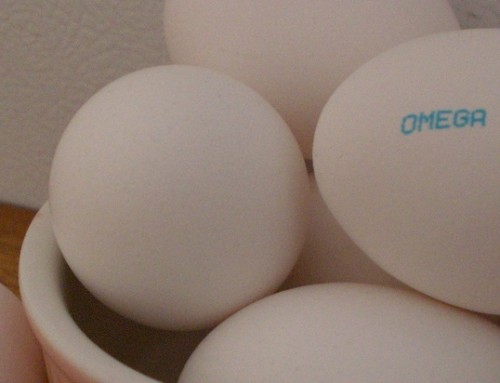
Supplementing the Equine Diet with Essential Fatty Acids
Auum Omega for Pets is also for horses and is currently being used for race horses and other pets (dogs and cats) with much success.
Omega 3 and Omega 6 are both valuable for health whether it is a human, a pet, or a horse. The other fat-soluble nutrients are in the Auum Omega 3 for Pets such as Vitamin A, Vitamin D, and Vitamin E.
This article now talks about the importance of essential fats for horses. A mammalian source for a mammal (horse) would be most effective. Auum Omega 3 for Pets is a whole raw source that is unrefined.
Auum for Pets brochure
***
Article as posted in “The Horse”
Although feeding fat to horses has often been a topic of heavy debate, current research indicates that supplementing essential fatty acids in horses’ diets is not only useful but might very well be a requirement. In fact, researchers have shown that feeding essential fatty acids (EFAs) for health-promoting benefits can be justified for not only maintaining skin and hoof health but also mental, digestive, reproductive, pulmonary, and joint health.
Jack Grogan, CN, and chief science officer for Uckele Health and Nutrition, has formulated nutritional supplements to support healthy metabolic balance in horses. Grogan explains that an added benefit of supplementing fat is that it generates less internal heat while being digested than protein or carbohydrates, keeping your horse cooler.
“Other benefits of higher fat diets can include enabling your horse to perform longer without fatigue, lowering the risk of injury, improving the ability to maintain body weight with less grain, and reducing the risk of colic and founder,” he adds.
Grogan goes on to explain that horses with higher energy requirements, such as pregnant or lactating mares, growing horses, performance horses, and horses recovering from accidents, injury, or surgery, can benefit from EFAs. “In addition, EFAs can allow lactating mares to breed again more quickly, enable horses to more efficiently and safely meet their energy requirements, improve coat condition, and reduce dehydration risk because a byproduct of fat metabolism is water.”
Important for many biological processes in the body, EFAs are required for the absorption of fat-soluble vitamins and phytonutrients, including vitamins A, D, E, K, and the carotenes, and are critical for the production of hormones and healthy cell membranes. Essential fatty acids cannot be manufactured or synthesized by the horse’s body from any other nutrients. Grogan points out that horses on pasture eat live plants that contain fatty acids as part of their cell wall structure, as well as seed heads of grasses and other grains that also contain a large amount of essential fatty acids.
“Unfortunately, typical equine diets today lack essential fatty acids because grains are processed and hay is dried, thereby damaging the natural fatty acid content that was once abundant,” he notes.
EFAs supply energy in the form of fat and have 2.25 times more calories than protein or carbohydrates with an average of 9 calories per gram versus 4 calories per gram provided by protein or carbohydrates. The body metabolizes EFAs in the small intestine, which can then be stored for energy or used as an immediate fuel source. They can consequently act as an energy reserve in the form of stored fat under the skin, around organs, and/or in the membranes surrounding the intestines.
Although feeding fat conditions the skin and coat to provide a healthy, shiny hair coat, Grogan mentions that many individuals overlook other benefits of feeding fat, such as its importance in the development of the brain and nervous system and its contribution to normal immune function.
More important, Grogan says, is that EFAs provide a dense source of calories. “Feeding fat as a source of calories provides for a sustained source of caloric energy. Horses are very efficient in utilizing and digesting fat as a source of fuel. What is fed early in the morning is slowly metabolized and utilized throughout the day.”
In addition, Grogan says that because EFAs are so efficient in providing calories to the equine diet, many horses that are considered “hard keepers” benefit from EFAs because they slow gastric emptying and stabilize blood sugar by evening out the digestion rate. Another benefit is as a dense “calming” energy source, which results in stable weight gain while preventing blood sugar-related mood swings.
In fact, one of the most significant benefits of good quality fat supplementation is fat’s ability to keep the blood sugar pattern steady, stable, and predictable. Inadequate fat intake contributes to very unstable blood sugar patterns that stress the horse’s metabolism by causing an increase in the release of cortisol, adrenalin, and insulin. When these hormones are over-relied on, the increases can affect mood, performance, immune function, and injury prevention. Because fats digest so much more slowly, the blood sugar does not become disrupted as easily, thus reducing the amount and frequency of stress hormone and insulin release, which then reduces inflammatory stress. Keep your horse healthy with the information in Understanding Equine Nutrition. Easy keepers also need good quality fat sources–in smaller amounts than hard keepers–to stabilize normal endocrine function and blood sugar patterns. This aids greatly in balancing stress hormones and insulin levels, which can substantially reduce excessive inflammatory stress.
Grogan concludes, “Essential fatty acids provide significant functions in the inflammatory responses by producing anti-inflammatory substances in the body, contributing to the growth and repair of tissues. In addition, it may enhance feed palatability. Unprocessed, unrefined oils provide a pleasant aroma and taste to the horse’s feed. This allows you to blend supplements, reduce dust and reduce the amount of molasses you have added to your horse’s feed.”
Know the Types of Fats:
- Saturated: solid at room temperature; mostly animal fats but includes coconut and palm kernel oil.
- Mono-Unsaturated: liquid at room temperature; includes vegetable fats, rice bran, and olive oil.
- Polyunsaturated: liquid at room temperature; contains more than one double bond; all of the essential fatty acids are polyunsaturated fats and include the Omega-3 and Omega-6 fats.
- Omega 3: includes alpha-linolenic acid and primary vegetable fats such as flax and fish oil; repairs cellular walls, acts as a potent anti-inflammatory and maintains an effective waste-expelling and nutrient-ingesting transfer system.
- Omega 6: responsible for causing inflammation and immune system reactions, a necessity in stabilizing injuries and fighting off infection.
- Refined oils: processed and stripped of “impurities,” which can often be the source of valuable nutrients, thereby increasing the risk of excessive inflammation.
- Unrefined oils: contain natural antioxidants such as vitamin E, beta-carotene, tocotrienols, and other tocopherols; they have a longer shelf life, are more easily digested, and can reduce the risk of excessive inflammation.
Source: http://www.thehorse.com/ViewArticle.aspx?ID=17937&eID=325266
Photos: http://www.dreamstime.com and http://www.pets4homes.co.uk/
***

Cheryl Millett
Champion for your better health…
Before the age of 20, it never dawned on me that what I chose to put in my mouth would have such a dramatic effect on my well-being.
On my path of discovery, I learned that our eating choices directly affected how much energy we have first thing in the morning or that it would build our immune system strength during flu season. I came to understand how gentle nutritional cleansing directly helped overcome my health challenges. People keep telling me how beautiful my skin is or how I look younger.
As my studies continued, it became obvious that there is an intrinsic connection between the mind, body, and spirit which directly affects our health and happiness. I learned that Omegas are another critical piece of the wellness puzzle. I became convinced when the Auum omegas alone turned on some switches in my brain in just one day.
I have developed a deep appreciation for the wonderful miracle workers our bodies are in the recovery process. Our bodies have natural intelligence. I am passionate to share the connection between nutrition and wellness in my practice and my presentations.
Keywords: Auum Omega-3, Auum Omegas for Pets, Inflammation, Immune System, Natural Products for Horses, Natural Supplements for Pets, Natural Foods for Dogs, Vegetable Oils, Unrefined Oils, Essential Fats for Pets, Essential Fats for Horses, Cheryl Millett, Vitamin D3, Vitamin A, Essential Fatty Acids, Omega-3, Omega-6








